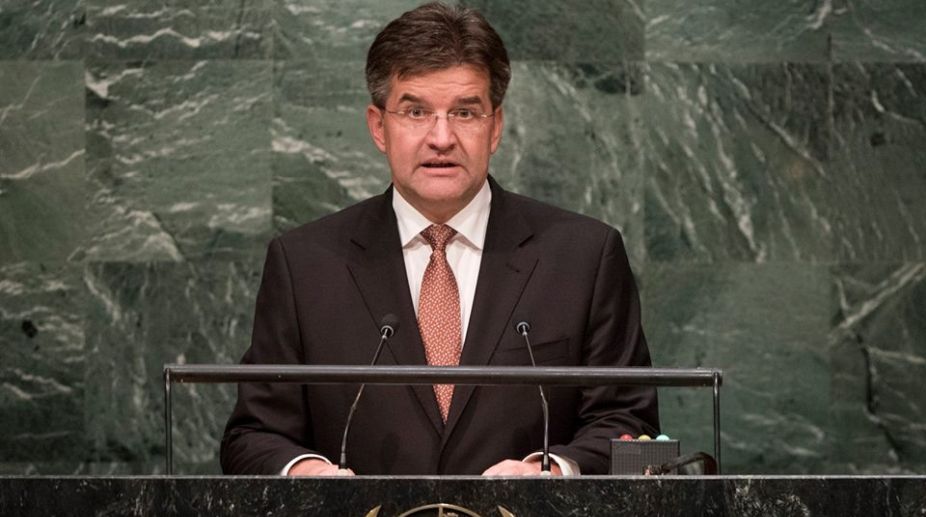General Assembly President Miroslav Lajcak is holding a series of consultations on Friday on how to deal with the deadlock in the International Court of Justice (ICJ) election in which Dalveer Bhandari of India is facing Britain’s Christopher Greenwood.
Lajcak’s Spokesperson Brendent Varma told reporters: “The President will meet today (Friday) with the President of the Security Council (Sebastiano Cardi of Italy), as well as the UN Office of Legal Affairs and the UN Department for General Assembly and Conference Management.”
Advertisement
Ahead of the next scheduled round of balloting on Monday, it is helpful to have coordination with Cardi because a candidate will have to get a majority in both the Council and the Assembly where the elections will be held simultaneously, Varma said.
He added that Lajcak “is a big proponent of dialogue.”
Bhadari and Greenwood are sitting judges who are seeking re-election.
Monday’s voting will be the third meeting of the Council and the Assembly for voting for the ICJ election.
The contest has emerged as a test of wills between the Assembly and Council. Bhandari has nearly a two-thirds majority with 121 votes in the 193-member Assemlby, while Greenwood has a slender majority of nine in the 15-member Council.
Since the procedures require a majority in both chambers, neither of them have not been able to be elected and neither body has been willing to compromise.
So far 11 rounds of balloting have been held over two days in the Assembly and 10 in the Council. Four others were elected on the first day, November 9, in the first four rounds with majorities in both chambers, After that seven rounds of runoff balloting in the Assembly and six in the Council were held between Bhandari and Greenwood without being able to break the deadlock.
Lajcak’s meeting with the legal department is significant as the Assembly and the Council would have to find a way to break the deadlock if neither candidate wins in both bodies on Monday.
On Thursday, Varma said that one of the methods to break the deadlock would be through a joint conference that “consists of six members, three appointed by the General Assembly and three by the Security Council.”
“And this joint conference could, by an absolute majority, agree upon one name for each of the vacancies, that is one seat (in this case) and submit that for acceptance to the Assembly and the Council,” he explained.
The issue of the imbalance of power between the two chambers has become the focal point of the election runoff between Bhandari and Greenwood, who is from a permanent member of the Council. Under the current system, the nine votes that Greenwood won in the Council are enough to neutralise the votes of 121 countries that Bhandari received in the Assembly.
The Permanent Members have by tradition each had a judge on the world court. That is now being challenged by the Assembly, where a majority have been chafing under the unrepresentative character of the Council, which wields enormous powers, and want it reformed.
The Permanent Members and their allies, meanwhile, are rallying behind the British candidate as they do not want to see their perk endangered by the loss of one of their own.
Bhandari, who originally ran for the Asia-Pacific seat on the ICJ, lost to Lebanese lawyer-turned-diplomat Nawaf Salam.
But because Greenwood did not get a majority in the Assembly, he was not elected either and has been locked in an unprecedented contest featuring a candidate from a permanent member of the Council and one who is not for the same category.
Three incumbent judges of the ICJ — President Ronny Abraham of France, Vice President, Abdulqawi Ahmed Yusuf of Somalia, and Antonio Augusto Cancado Trindade of Brazil – were elected along with Salam in the first four rounds of voting on November 9.









